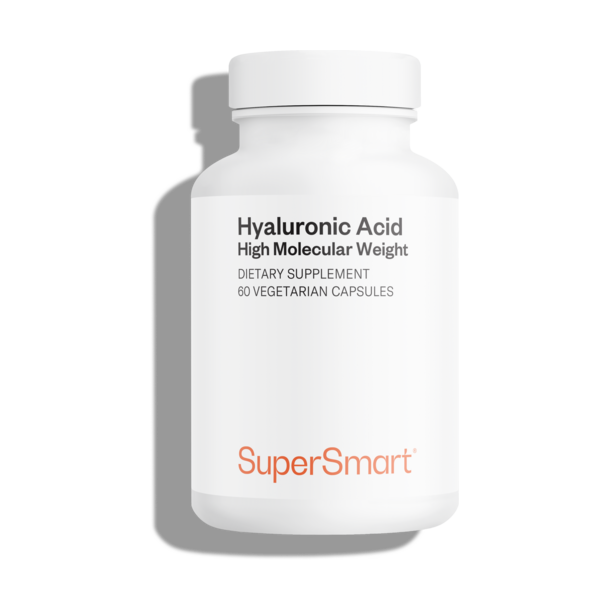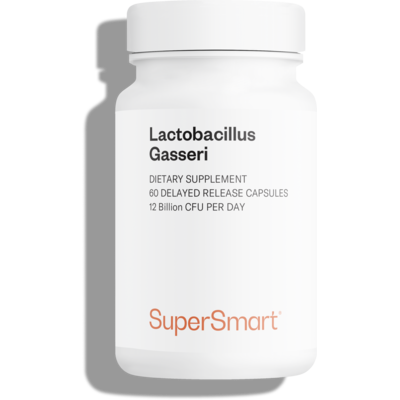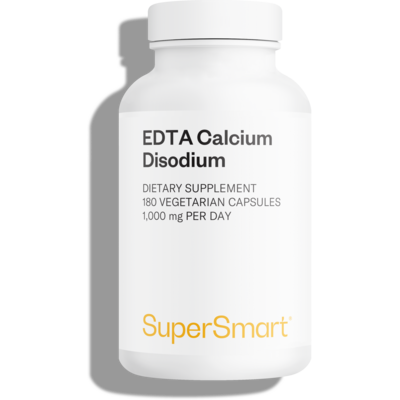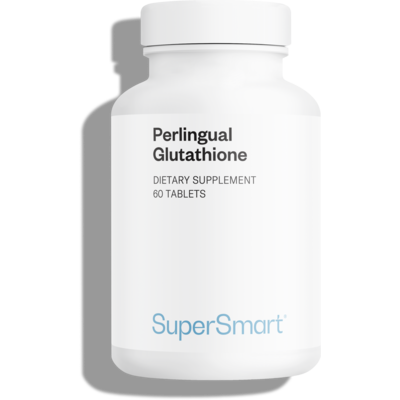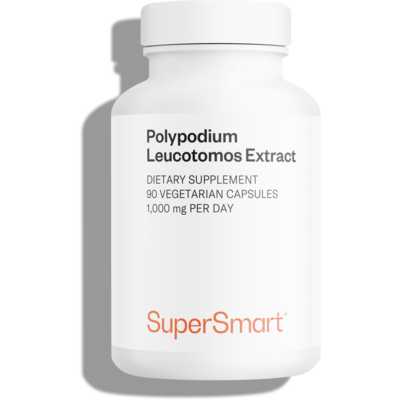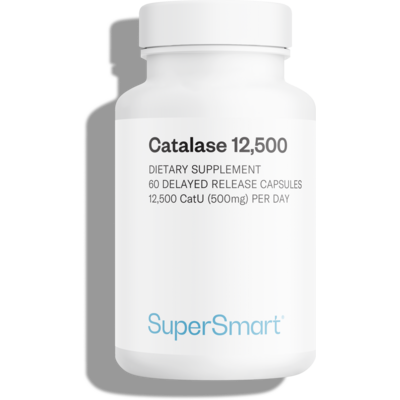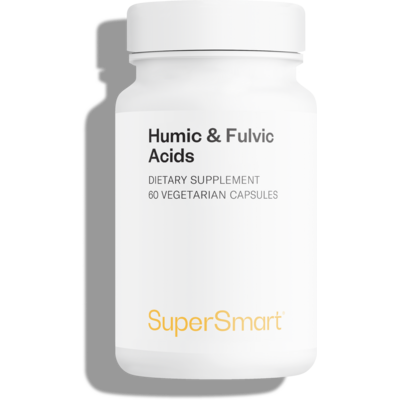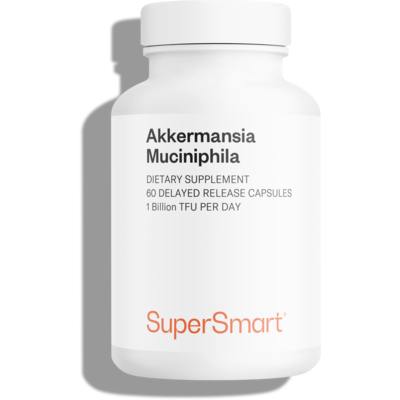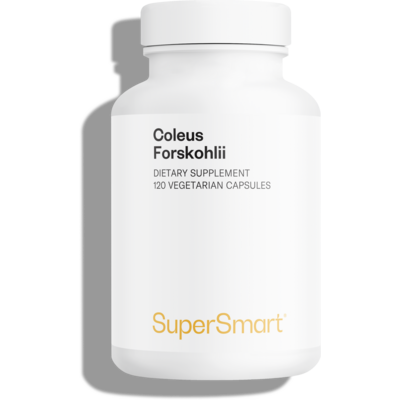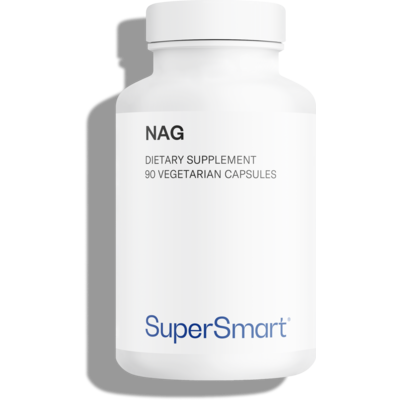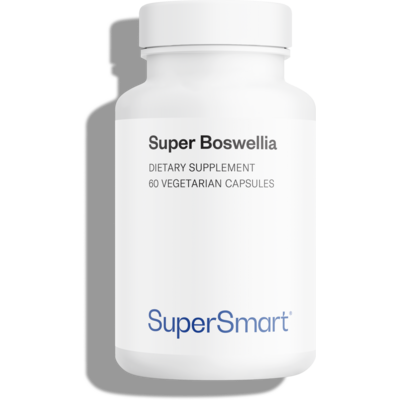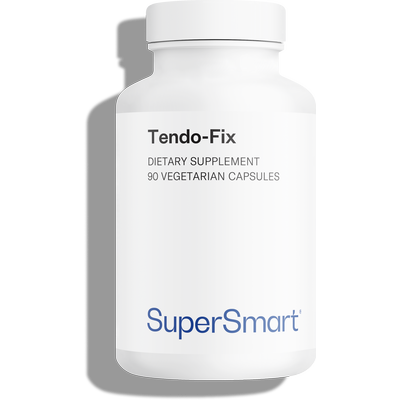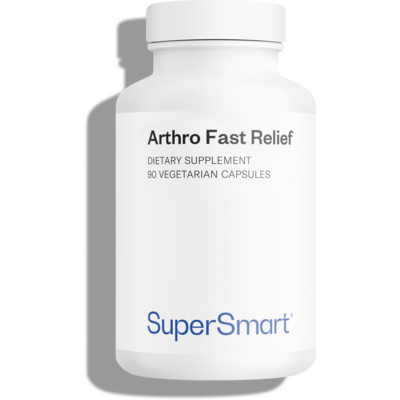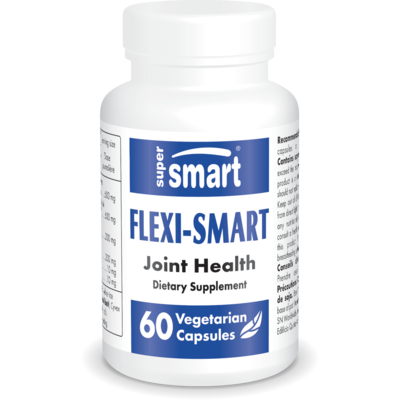Create Your Offer
Hyaluronic acid supplements provide a high molecular weight form of hyaluronic acid sodium salt, which may help support joint lubrication and contribute to maintaining healthy skin hydration.*
What is High Molecular Weight Hyaluronic Acid?
In recent years, hyaluronic acid has drawn increased attention from both the medical and cosmetics fields. It is a polysaccharide macromolecule belonging to the glycosaminoglycan family and is naturally present in the skin and synovial fluid—the viscous substance that helps cushion and lubricate joints.*
Hyaluronic acid is naturally produced by the body, particularly by chondrocytes and synoviocytes, and plays a role in maintaining the viscosity of synovial fluid, which may support joint lubrication.* It also contributes to skin hydration by helping retain moisture in the deeper layers of the skin.* Some research suggests it may influence the presence of certain immune molecules involved in the body’s inflammatory response.*
The viscosity of hyaluronic acid gel may be influenced by the length of its molecular chains—higher molecular weight is thought to help enhance water-retaining properties.* With a molecular weight of approximately 1.2 million Daltons, our hyaluronic acid supplement provides a concentrated form of sodium hyaluronate that may help support skin hydration and joint comfort.*
How is it Produced?
Hyaluronic acid used in dietary supplements may be produced through two main methods:
- Extraction from rooster combs: a traditional method where the compound is carefully collected and purified.
- Bacterial fermentation: a process in which beneficial microorganisms help generate hyaluronic acid under controlled conditions.
Our oral hyaluronic acid supplement is produced using the second method, which involves a fermentation process. This approach makes it suitable for vegetarians and vegans and allows for controlled production to help ensure consistent quality and purity.*
The human body naturally produces hyaluronic acid through a process that was explored in detail about 20 years ago by Professor Paul Weigel and his team.* This synthesis takes place at the inner surface of plasma membranes and has been described as a rapid and efficient biological mechanism.*
What Are the Properties of Hyaluronic Acid?*
In the body, hyaluronic acid is naturally present as sodium hyaluronate, also known as hyaluronan, particularly in synovial fluid surrounding the joints. This molecule typically has a high molecular weight—often over one million Daltons—and, under normal physiological conditions, may occur in concentrated amounts. Due to its unique structure and size, it has the potential to attract and retain significant amounts of water—up to 1,000 times its own weight—along with various nutrients and hydrophilic compounds.* It plays a key role in contributing to the viscosity and elasticity of synovial fluid, which is important for joint function.*
In some situations related to changes in health status, both the concentration and molecular weight of hyaluronic acid sodium salt may decrease. This reduction might be associated with increased inflammatory activity and could potentially affect cartilage health and joint comfort.*
Potential Benefits of Hyaluronic Acid Supplements*
Oral hyaluronic acid supplements are often taken for their potential to support joint lubrication and skin hydration.* Some preliminary research also suggests they may play a role in supporting the body’s natural wound-healing processes.*
The following sections explore the potential health-supportive properties of hyaluronic acid supplements in greater detail.* They also include links to relevant studies that may help you better understand how this compound could contribute to overall comfort, well-being, and quality of life.*
May Support Joint Lubrication*
Hyaluronic acid is a natural component of synovial fluid, which helps maintain cushioning and lubrication in the joints.* Adequate joint lubrication may help minimize friction between bones during movement, which in turn might support joint comfort and mobility.*
A study examining oral hyaluronic acid supplementation alongside quadriceps strength training suggested that participants who took hyaluronic acid reported more favorable experiences related to knee comfort compared to those in the placebo group.*
Potential Role in Skin Hydration*
When skin is well-hydrated, it may appear smoother and more youthful, with wrinkles potentially becoming less visible.* Studies have explored the role of hyaluronic acid in skin aging, highlighting its importance in hydration due to its notable water-retention capacity.*
Skin aging is often linked to a gradual loss of moisture, whether from environmental exposure or the natural aging process.* Hyaluronic acid, which makes up about 50% of the body’s total hyaluronic acid content, is abundant in the skin and may help regulate water balance, osmotic pressure, and ion flow within the dermis.*
Studies on ingesting hyaluronic acid to moisturize dry skin suggest that it may help support skin hydration in individuals experiencing dryness, potentially contributing to enhanced skin comfort.*
When taken orally, hyaluronic acid may be absorbed and distributed to various tissues, including the skin and liver.* Once in the skin, it may contribute to hydration by supporting cellular renewal and water retention processes.*
Potential Wound Healing*
Studies on hyaluronic acid in inflammation and tissue regeneration suggest that hyaluronic acid may play a role in tissue regeneration and various phases of wound healing.* This includes its potential involvement in the inflammatory phase and angiogenesis, the formation of new blood vessels.*
Hyaluronic acid is a major component of the extracellular matrix, which contributes to the structural integrity and function of tissues.* Additional studies on hyaluronic acid and wound healing indicate that high-molecular-weight hyaluronic acid may be involved in the initial phases of the wound repair process.*
Is High Molecular Weight Hyaluronic Acid Well-Absorbed?
For many years, it was thought that orally consumed hyaluronic acid offered limited benefits due to its naturally high molecular weight. However, emerging research suggests that hyaluronic acid taken in capsule form may be absorbed and utilized by the body, offering potential support for joint and skin hydration.*
According to animal studies, orally administered hyaluronic acid may be able to reach the bloodstream and various tissues in the body.* These findings align with observations from supplementation studies conducted in animals such as horses, and suggest possible relevance for human use as well.*
It is believed that certain hyaluronic acid molecules may cross the gut barrier via microparticles, with some potentially reaching peripheral tissues such as the skin and joints.* This transport is thought to follow normal physiological pathways, which may make supplementation an appropriate intake form.*
Why Choose a High Molecular Weight Hyaluronic Acid Supplement?*
As noted in the previously cited study on hyaluronic acid and skin aging, different molecular weights of hyaluronic acid may serve different functions in the body. Research suggests that lower molecular weight forms might influence cellular activity, including pathways associated with the body’s natural inflammatory responses.* These smaller fragments can form naturally during physical stress, when enzymes break down larger hyaluronic acid molecules.*
These effects have not been observed with larger hyaluronic acid molecules, which suggests they may remain more stable during digestion and potentially cross the intestinal barrier intact.*
What Else Can Support Joint and Skin Health Alongside Hyaluronic Acid Supplements?*
In addition to taking a hyaluronic acid supplement, there are a few lifestyle habits that may further support skin and joint health.*
- Consider gradually increasing your daily physical activity to support joint mobility.*
- Try to avoid repetitive movements or excessive strain on sensitive joints.*
- Staying in one position for too long may lead to stiffness—regular movement and gentle stretching can help.*
- You may also explore complementary approaches such as physiotherapy or herbal support. For example, Super Boswellia contains boswellic acid, which has been studied for its potential role in joint comfort.*
Key Considerations Before Starting Hyaluronic Acid Supplements
While studies on the use of oral hyaluronic acid for knee comfort and its potential to support skin hydration have not reported significant adverse effects, it’s important to consult with a healthcare professional before beginning any new supplement regimen.*
We recommend speaking with your healthcare provider before adding a dietary hyaluronic acid supplement to your wellness routine. They can help review your overall health to ensure it aligns with your individual needs and goals.*
As a precaution, women who are pregnant or nursing are generally advised to avoid using this supplement unless recommended by a qualified healthcare professional.*
If you experience any unexpected effects after starting a hyaluronic acid supplement, it is best to discontinue use and consult your healthcare provider.*
Keep all dietary supplements stored safely out of reach of children and pets. It's also recommended to avoid using any product that has passed its indicated "best by" date for quality assurance.*
WARNINGS
Do not exceed the recommended daily dose. This product is a nutritional supplement and should not be used as a substitute for a varied and balanced diet or a healthy lifestyle.
STORAGE
Store in a cool, dry place away from direct sunlight, heat, and humidity. Keep out of reach of children.
PREGNANCY AND MEDICAL CONDITIONS
If you are pregnant, breastfeeding, or have any medical conditions, consult your healthcare provider before using this product.
SUPPLEMENT INTERACTIONS
Consult your healthcare provider before use, especially if you are taking any medications or other supplements as there may be potential interactions.
august 23 2025
When searching for high molecular weight HA, this was one of the few I could find that actually listed the molecular weight.
november 28 2024
Highest Dalton count I could find.
april 20 2024
One of the few HA products that claims to be high molecular weight and lists Daltons.
january 27 2024
I have very dry skin, especially in the winter. I go through jars and jars lotion. Not only has this helped immensely, it's saving me money not using nearly as much lotion.
Need Help?
Phone Number
+1 (786) 522-3907
From 9 am to 6 pm (EST)
Email Address
You May Also Like

